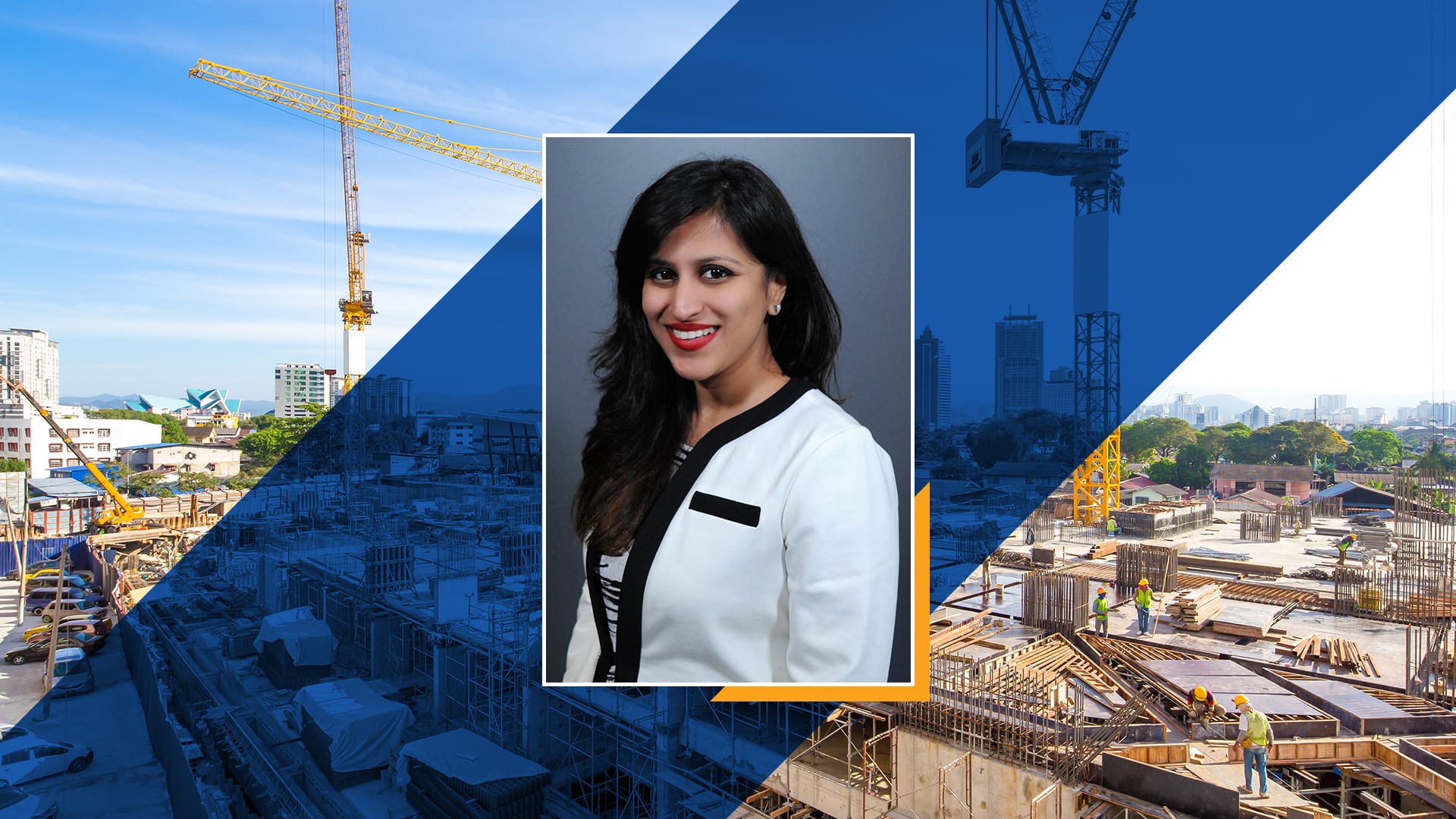
What does it take to collaborate effectively with team members in a world that has gone suddenly remote? In this year of uncertainty and change, many construction professionals have succeeded by breaking down barriers and leaning into innovative technologies to connect with stakeholders, team members, and clients. We’re highlighting just how these industry professionals are making the digitization of construction work for them in our 2020 Heroes series.
One of those heroes is Ruhi Thakur, Assistant Project Manager at Webcor in San Francisco, California. As the BIM manager for the $1.5 billion Biosolids Digester Facilities Project in San Francisco, Ruhi is responsible for developing and implementing its comprehensive BIM Execution Strategy. This waste treatment project is one of the most ambitious and complex of its kind in the United States. It is set to transform an aging plant into a green, sustainable plant that will revitalize its lowest-income community.
As a 40 Under 40: Champion of Construction 2020, Ruhi leads a team of dedicated VDC specialists at both MWH and Webcor. She also led an effort working with a Ph.D. student intern from Stanford University to pilot the use of virtual reality for constructability review. There’s no doubt that Ruhi has flexed her creative, collaborative, and technical skills to overcome constraints created by the pandemic.
We recently spoke with Ruhi about her work at Webcor, how to overcome resistance to new technology, and the importance of empathy in collaboration. Read her story below.
Webcor specializes in a lot of different areas. We have preconstruction services, construction services, and closeout services. We work with a variety of industries, including infrastructure, hospitality, commercial, and residential.
Webcor has given me a lot of opportunities to try different avenues within the company. With Webcor, I started at the SFO Terminal 1 project where I got a chance to work on VDC scope. I then got a lot of experience managing the drywall and interior scope, and was closely working with the superintendent. Then I moved on to another project, where Webcor wanted me to explore more of my technology skills. At this project, a Biodigester facility, is where I’m in the role of a BIM manager.
I like not just to push technology in our projects but also encourage individuals to adopt it further. The goal is to push that boundary a little more each day. Every time I have an opportunity, I'll try to do something more with the team, and there's just a whole world there to explore.
In this remote scenario, it is challenging to connect with your audiences easily. Now that we are adding another layer - mutually using new tools and technology which is often difficult for some people.
I have often heard comments - “It’s too complicated”, “Let's not go there" when it comes to new tech or process adoption in construction. So, I realized we are always on a time crunch and need to dedicate sufficient time to analyze new changes in this fast paced industry. When I propose a new technology solution I try my best to research at length and propose an analysis. Adoption of technology is easier when analysis is results-oriented which is not just conceptual but capable of implementation.
There are two parts to this. There’s the traditional way where we have the stakeholders involved face to face in meetings. In this format, I generally display models on my screen using coordination software over an online or in person meeting.
The new format with which we are experimenting is a more immersive environment. Alongside a Ph.D. student intern from Stanford University, our team experimented with wearing the Oculus headset and used a product called Prospect. This simulation gave us a chance to enter inside the model and get a real-life experience. This was shared with the larger team through a training where some of us played different roles to simulate a coordination meeting. This training was a success resulting in our team ordering additional headsets to learn further VR implementation.
Before COVID, we always knew we wanted to go in this direction. But when people could easily meet in person, we weren’t motivated enough to try VR. With COVID, everyone is in their own houses, in their own silos, so it’s a nice platform for us to meet together, and it feels very real.
2020 was challenging, especially since I’ve always been used to working at the jobsite. It was a big change. Just understanding how to create a new lifestyle and work habits took time. Previously, it was way easier to separate work from personal life. Now work and personal life are intertwined.
Webcor has many different internal programs where we talk about how to work from home, ergonomics, online resource pages, importance of diversity and inclusion etc. There are a lot of different things that Webcor is doing to get us engaged. Also, working in a large team helps me understand that everyone has different working criteria. You're getting a sneak peek into everyone's personal life, and it's nice to see that. That's how you can empathize with the people you are working with.
The silver lining has definitely been the connections we have developed by communicating with each other over video calls. As I mentioned there is a bit of a sneak peak into each other’s lives which is connecting us beyond work.
On a broader scale, I heard Andrew Anagnost say that, now, construction is permanently digitized (in his Autodesk University keynote). I see it that way as well. This is a powerful and effective change because now we know things can be done differently.
With the pandemic, I truly appreciate all the healthcare workers. I also think of my family and my friends who have done a great job at abiding by rules, regulations, and doing their part in supporting the entire community. Since my family is spread across the globe we just don’t think of the community as places where they or I live instead our community is the world now. Being united on what actions to take, believing in the scientific facts and understanding what needs to be done, makes me very proud of the family overall. They've been my biggest heroes.
There's a whole world where we don't have to physically be present for every single task. Taking advantage of what 2020 has taught us- construction professionals and firms, should invest more in R&D of integration of new technologies. There is a lot of technology available but the integration part is very weak. Implementation of new tech is occurring in small pockets within small groups. For example various project teams within a firm are sometimes not aware of the great work their firm is doing. Since more projects will now be mega projects, joint ventures, triventures etc it is going to be complex to achieve full integration of construction software. Each project may look different in terms of technology workflow. To align across project types and still be at cutting edge technology is an exciting challenge for the industry today!

May we collect and use your data?
Learn more about the Third Party Services we use and our Privacy Statement.May we collect and use your data to tailor your experience?
Explore the benefits of a customized experience by managing your privacy settings for this site or visit our Privacy Statement to learn more about your options.